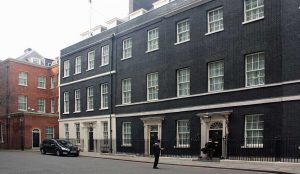It is currently Reading week – a time to read. Yeah. Or something like that.
In addition to reading, we have been set a short assignment to comment on a case we have been looking at in Constitutional & Administrative Law, an assignment I have just completed and am now going to republish here:
Read the Court of Appeal decision of Brooke LJ, and the House of Lords decision of Baroness Hale, in Begum v Denbigh High School. In your opinion, how should this case have been decided and why.
The UK is not secular – throughout the country there exist schools run by the church, Religious Education is part of the national curriculum and religious dress is often incorporated into uniform policy. Indeed, the history of the UK revolves around religion and the influence of the Church of English, and now increasingly the religious beliefs of a wide variety of faiths. In contrast, the United States (and many countries in Europe) operates a secular educational system to allow the state to appear neutral. However, despite this, an interesting paradox exists in that the US “is now the most religiose country in Christendom, while England is among the least”[1] . This is particularly the case when the President of the USA himself openly states that “he [is] driven with a mission from God”[2] which goes against the original non-religious founding beliefs of the American government.
Whilst this decline may be true for Christianity, we are hearing more and more in the news of disputes arising not from Christian believers but from the members of the Islamic faith. Islam is often seen as much more extreme in the way belief is expressed – particularly with the dress code. Considering this in isolation, it seems silly that such an expression of religion can inspire such thoughts when the habit worm by a nun would be accepted without a second thought. The headscarf or full length dress is often seen as a symbol of Islamic fundamentalism and thanks to coverage by the media, in particular the relationship with terrorism, the connotations of these clothes create an air of suspicion and even fear in Western countries.
So when a case such as Begum v Denbigh High School arises, it is immediately transported to headline news and becomes a talking point across the country. The question that is raised here is not whether someone should be allowed to express their beliefs but how far the freedom to do so should extend. This is particularly relevant in the case of Denbigh High School who were very accommodating with their uniform policy to ensure, in consultation with the local religious community, that all reasonable options were available to pupils. But what is “reasonable”?
From this case, and others like it, it is apparent that whilst the courts are of course allowing the right under the ECHR, they are applying certain conditions to it where other people or society as a whole is affected. This was particularly the case with the recent case of the teaching assistant Aishah Azmi who was suspended for wearing a full veil during lessons[3]. The stance taken here was that the veil caused health and safety problems during certain lessons and children had found it difficult to communicate with her.
In both the Begum and Azmi case, a choice is available – in the former, the student does not have to attend the school and in the latter the assistant can find a different job. On its own, this sounds like a very stubborn approach – “we’re not changing so if you don’t like it, go elsewhere” – but in reality both schools attempted to make concessions for these kind of situations and in both cases the options presented were declined. When looking at it like this, to avoid dangerous precedent, the courts really had no option to find against both claimants. If their cases were to have succeeded then it could result in a large number of similar cases for all kinds of religious beliefs resulting in great expense for organisations forced to accommodate any request. It would then be seen to be taking advantage of the tolerant society and the rules set out in the ECHR that exists in the UK which does not exist in other countries, particularly those where Islam originated.
At the heart of the debate is of course religion and the rights allowed for each individual to freely associate himself with any religion of his choosing. An interesting argument raised by Richard Dawkins in his excellent book, The God Delusion, is why do we treat religion with such respect and consider it polite not to interfere with the religious beliefs of another? This possibly derived from a speech by Douglas Adams:
“Religion…has certain ideas at the heart of it which we call sacred or holy or whatever. What it means is ‘Here is an idea or a notion that you’re not allowed to say anything bad about; you’re just not. Why not? – because you’re not!’ If somebody votes for a party that you don’t agree with, you’re free to argue about it as much as you like; everybody will have an argument but nobody feels aggrieved by it. But on the other hand if somebody says ‘I mustn’t move a light switch on a Saturday’, you say, ‘I respect that’. When you look at it rationally there is no reason why those ideas shouldn’t be as open to debate as any other, except that we have agreed somehow between us that they shouldn’t be.”[4]
So perhaps the real question that needs to be considered is why does the ECHR give such direction over freedom of religion in the first place? When you do actually consider that and come to the conclusion that there is no reason, you understand why the secular state exists.




